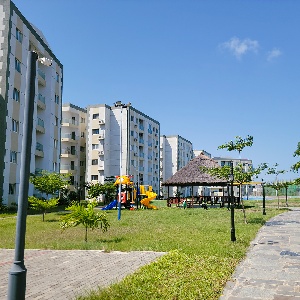- Home - News
- Elections 2024
- News Archive
- Crime & Punishment
- Politics
- Regional
- Editorial
- Health
- Ghanaians Abroad
- Tabloid
- Africa
- Religion
- Photo Archives
- Press Release
General News of Wednesday, 28 May 2025
Source: www.ghanawebbers.com
The 8-step process to buy a house in Ghana
Buying a house in Ghana can be challenging, especially for first-time buyers. The real estate market is growing, with increasing demand for housing. Waylead, a top real estate developer in Ghana, outlines the steps to buy property.
Step 1: Determine Your Budget
Before searching for a property, set your budget. Consider your goals, income, savings, and expenses. Financial advisors suggest housing costs should not exceed 40% of your monthly income. Think about payment options like mortgages or outright purchases. Always keep your budget goals in mind.
Step 2: Choose a Location
Ghana has attractive locations like Accra, Tema, and Takoradi. Each area has unique features and benefits. When choosing a location, consider proximity to work and schools.
Step 3: Search for Properties
After selecting a location, start searching for properties. Use Google to find the best listings available. Shortlist no more than three property developers that meet your needs. Create a comparison matrix to evaluate pricing and features.
Step 4: Choose a Reputable Real Estate Company
The real estate market in Ghana can be complex and risky due to fraud cases. Partnering with credible companies reduces these risks significantly. Check memberships with the Ghana Real Estate Developers Association (GREDA). Seek recommendations from experienced buyers and read online reviews.
Step 5: Inspect the Property
Once you find an interesting property, inspect it thoroughly. Modern gated communities are common but quality assurance is vital. Arrange inspections with developers or hire a professional surveyor if possible. Check building materials, structural integrity, security measures, and maintenance policies.
Step 6: Negotiate the Price
Negotiation is common in Ghana's real estate market. Developers may offer discounts for early payments or bulk purchases. Discounts of up to 5-10% are possible based on negotiation skills and terms offered. Evaluate offers based on construction quality and future appreciation potential.
Step 7: Due Diligence
Conduct due diligence to avoid future disputes or legal issues. Property title disputes are common in Ghana's real estate sector. Verify land titles at the Lands Commission and ensure documentation is legitimate. Request detailed offer letters from developers outlining payment plans.
Step 8: Closing the Deal
Once satisfied with due diligence, finalize your purchase agreement carefully. Review it thoroughly with a lawyer to protect your interests. The agreement should include total price, payment schedule, rights of both parties, warranty conditions, and dispute resolution procedures before signing.
Tags: Ghana News | Ghana Real Estate Developers Association | House











